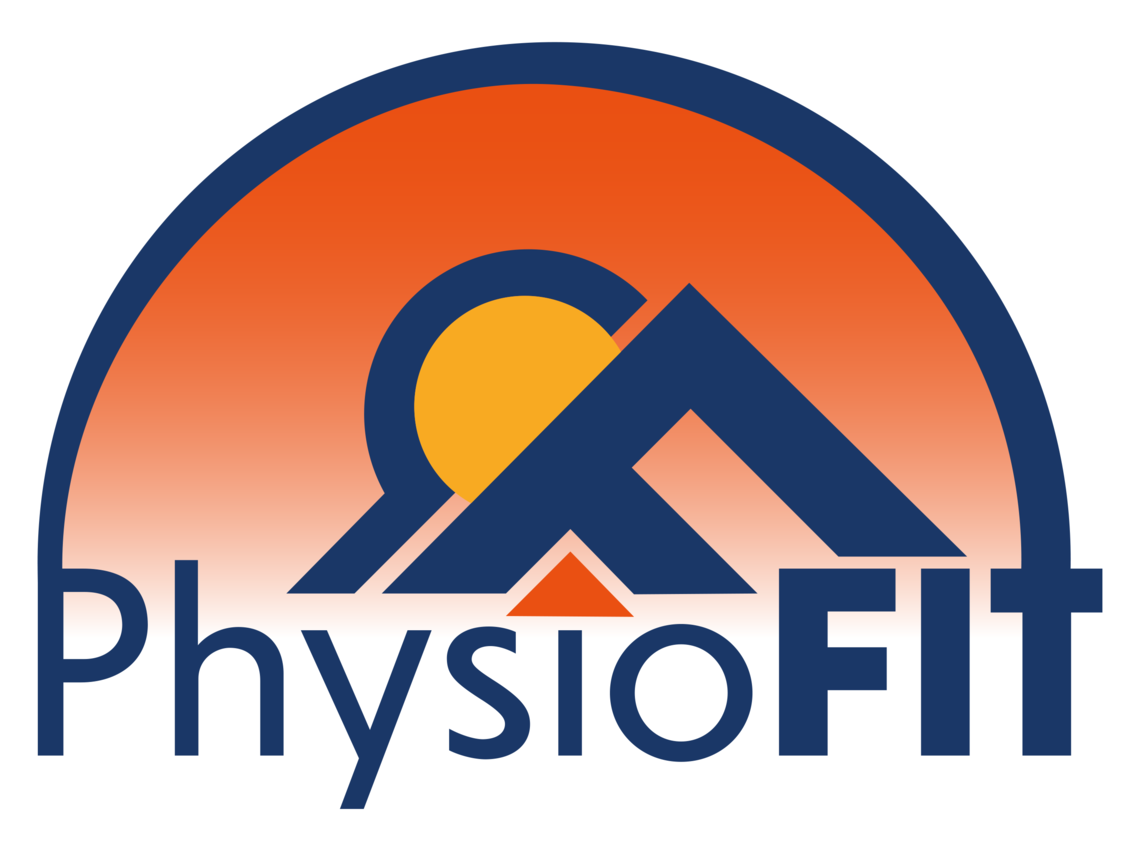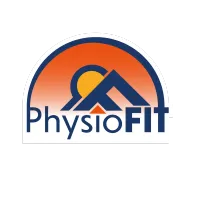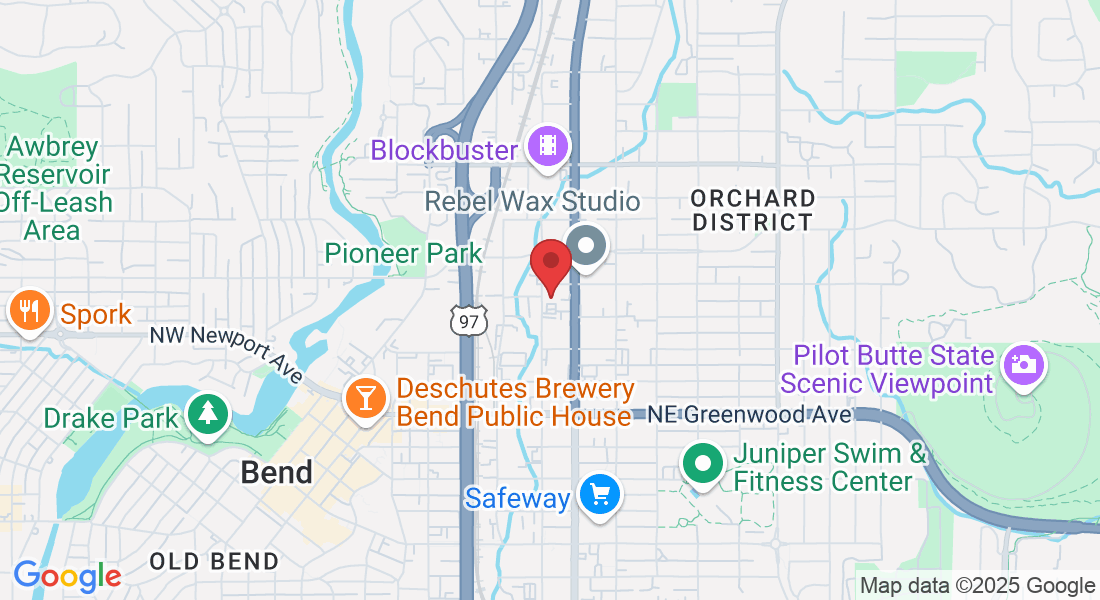PhysioFITNESS
Fitness Injuries: Recover & Recondition With Physical Therapy
Unlock Your Athletic Potential with Effective Rehabilitation for Fitness & Sports Injuries: At PhysioFIT, we understand the frustration and setbacks that sports injuries can cause, impacting athletes' seasons, games, and even their careers. Whether you're an athlete, a fitness enthusiast, doing Crossfit, or just someone who enjoys staying active, our dedicated team of physical therapists is here to provide expert care and help you recover from injuries, regain strength, manage pain, and prevent future problems. Don't let injuries hold you back—schedule an appointment today and take the first step toward getting back in the game.
What You Should Know
According to the National Institutes of Health, the prevalent types of fitness injuries most often include:
Knee Injuries & Sprains
Shin Splints & Strains
Swollen Muscles, Fractures, & Dislocations
A proper diagnosis of a fitness or sports injury involves a thorough evaluation from a professional.
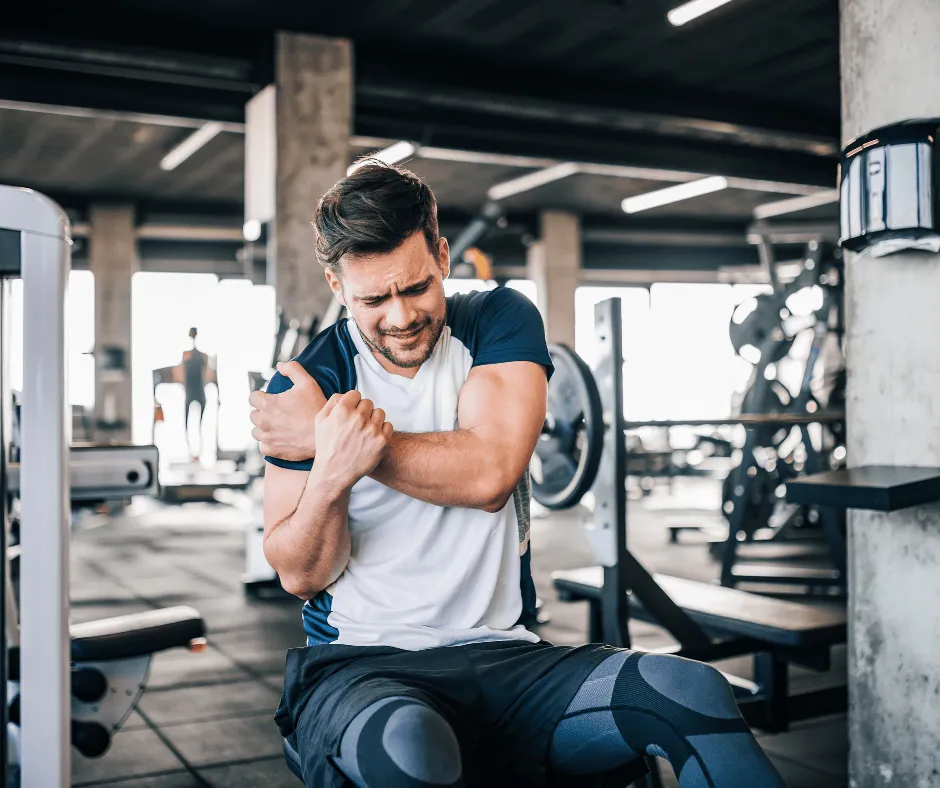
What are the Most Common Ways Athletes Get Hurt?
Depending on the nature of the sports activities in which athletes participate, they may face the possibility of encountering different types of injuries. The human body is subjected to unique stresses and demands during various sports, making certain injuries more prevalent in specific athletic pursuits.
By understanding the specific injury profiles related to their sports, athletes can implement targeted training strategies, adopt proper techniques, and seek professional guidance to reduce the risk of injury and optimize their performance on the field or court.
Ankle Injuries: Athletes who engage in activities involving frequent running are susceptible to ankle injuries. Rolling or twisting the ankle can lead to strains or tears in the connective tissues.
Pulled Muscles: Overusing tired muscles, especially after prolonged workouts or performances, can cause them to stretch or tear. This commonly occurs in various areas of the legs due to the constant running, jumping, and quick changes of direction required in most sports.
Shin Splints: Extended periods of running can result in inflammation of the muscles and connective tissues surrounding the shin.
Knee Injuries: A sudden twisting or improper bending of the knee can cause ligament sprains.
Tennis Elbow: Officially known as tendinitis, tennis elbow occurs when the muscles and connective tissues around the elbow become inflamed from repetitive use.
Hip Flexor Strain: The hip flexor muscles, located on the upper-front side of the thigh, play a significant role in lifting the knee towards the trunk and assisting in leg movements. Weakness or stiffness in these muscles can be caused by prolonged sitting or poor posture. Sports-related injuries to the hip flexors can occur during activities such as sprinting, running on inclines, and sudden starts and turns.
In addition to joint, muscle, and bone injuries, concussions have become a prominent concern in sports. A concussion is a traumatic head injury that may result in severe headaches, altered levels of alertness, or even loss of consciousness. It can occur when the head is struck by a moving object or hits a solid surface.
Concussions are among the most challenging injuries to manage in sports today, and physical therapy plays a crucial role in the multidisciplinary approach to their diagnosis and treatment.
If any of this information resonates with your current situation, we urge you to schedule an appointment with us immediately. Don't let hip pain diminish your life quality - allow us to help you embark on the path to relief today.
Please Note: The information provided on our website is intended for general education and is not a substitute for professional medical advice. Each individual's situation and body is different. Therefore, what may work for one person may not work for another. We care about your well-being and advise you to reach out to us to discuss your specific needs before implementing any advice from our website.
Client Testimonials
Performance Programming
What is Performance Programming?
At PhysioFIT, our Performance Programming is designed to take your abilities to new heights. Whether you are a seasoned athlete or just occasionally active We offer a comprehensive personal training program that focuses on enhancing your overall physical performance. From beginners to professionals, our customized approach ensures that your training aligns with your specific goals.
Our performance programming, aka performance coaching, encompasses a wide range of exercises that target various aspects of your level of athleticism, including mind-body connection, mobility, stability, strength, endurance, power, speed, agility, and overall performance. Through a very personalized combination of exercises, we aim to improve your strength, endurance, technique, and overall physical performance. Our expert team of personal trainers and physical therapists in Bend will work closely with you to develop a personalized program that caters to your unique body, abilities, and lifestyle.
With our Performance Programming, you can expect to see improvements in your physical performance, reduce the risk of injuries, and enhance your strength and overall mobility. It's not just for elite athletes but also beneficial for individuals of all ages and abilities who want to improve their health, maintain an active lifestyle, and unlock their body's full potential.
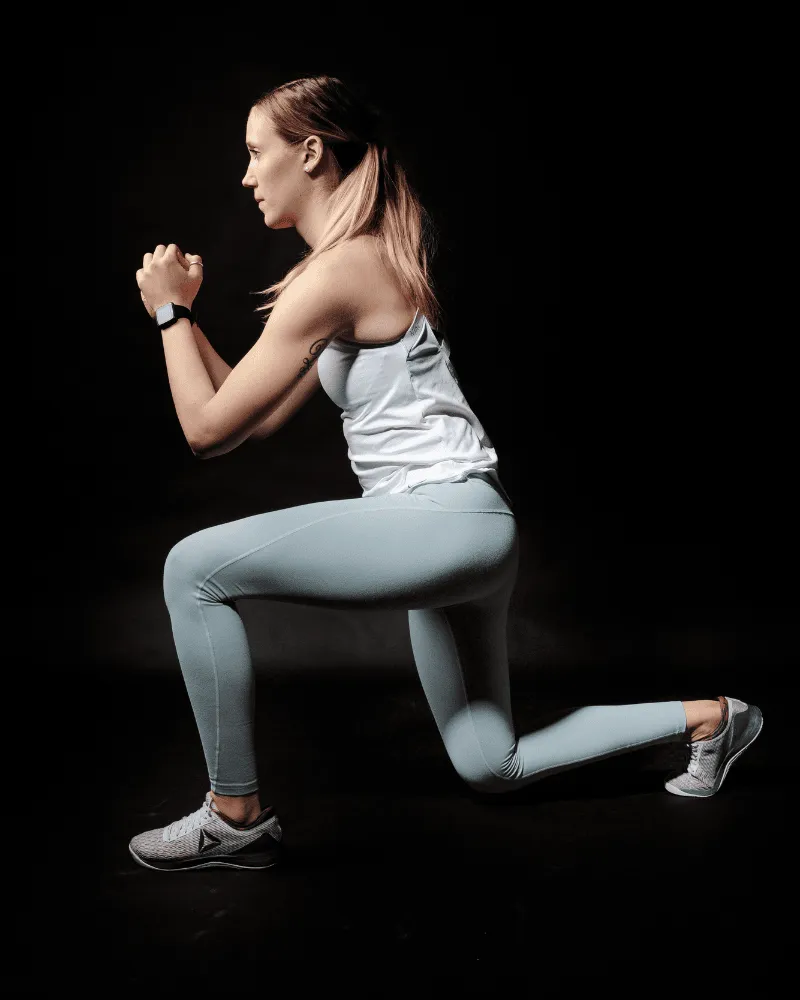
The Benefits of Performance Programming
Enhanced Physical Performance: Our Performance Programming is designed to optimize your fitness abilities and take your performance to the next level. Through targeted exercises and specialized training techniques, you can improve your strength, endurance, speed, agility, and overall physical performance.
Injury Prevention: Our program includes exercises that focus on building strength, stability, and proper movement mechanics, which can help reduce the risk of fitness-related injuries. By improving your body's resilience and addressing any muscle imbalances or weaknesses, you can enhance your ability to withstand the physical demands of your lifestyle.
Technique Improvement: Our expert trainers and physical therapists work closely with you to fine-tune your technique and movement patterns. By providing personalized feedback and guidance, we help you optimize your form, maximize efficiency, and improve your overall technique, leading to better performance and reduced risk of injuries.
Tailored to Your Needs: Performance Programming at PhysioFIT is customized to your specific body, abilities, and goals. We take into account your specific lifestyle demands, current fitness level, and any limitations or considerations you may have. This personalized approach ensures that you receive the most effective training plan that is tailored to your unique needs.
Your Source for All Things Physical Therapy in Bend Oregon
The PhysioBlog
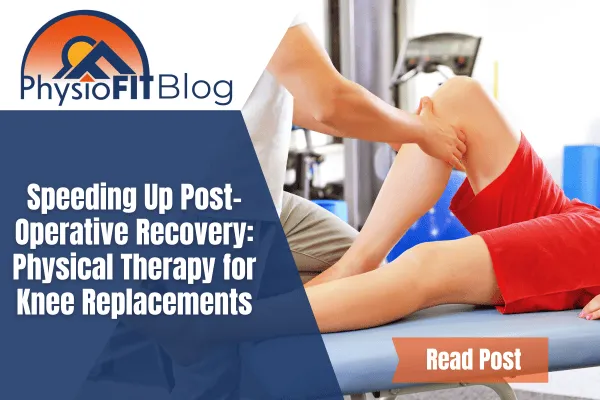
Speeding Up Post-Operative Recovery: Physical Therapy for Knee Replacements
Introduction
When knee pain dominates your life, knee replacement surgery can be a last resort when seeking relief. But, let's not forget - the journey doesn't stop at the operating room. Indeed, it extends further, with successful recovery hinged on a robust rehabilitation plan. With decades of experience, we at PhysioFIT understand this journey inside and out. We offer custom-tailored physical therapy that is designed to expedite your recovery and get you back on your feet—literally.
Why Physical Therapy is Essential After Knee Replacement
Physical therapy is the backbone of recovery, post-knee replacement. It's the catalyst that drives knee mobility, muscle strength, and most importantly functionality. Moreover, it acts as the key to unlocking your routine activities sooner, and with less discomfort. You might be wondering, "How can I speed up my recovery after knee replacement?" The answer lies in a well-structured, professionally guided physiotherapy program. And at PhysioFIT, that’s exactly what we do to help you rebound quickly and bounce back better than ever.
Unraveling the Complexities of Knee Replacement Surgery
Before we dive into the recovery, let's take a quick look at what exactly happens during a knee replacement surgery:
Knee Replacement Surgery: An Inside Look
Also known as a total knee arthroplasty (TKA), knee replacement surgery involves replacing damaged parts of your knee with medical grade hardware designed to mimic your natural architecture. A surgeon’s go to for individuals with severe knee damage that disrupts daily activities. A procedure that can be a game-changer for those that truly need it.
The Initial Stages of Post-Operative Care
When the surgery is complete, the initial focus shifts to healing the wound, managing pain, and preventing any post-operative complications. Once these initial concerns are put to rest, the spotlight moves to rehabilitation and, our main protagonist, physical therapy.

How Does a Physical Therapist Aid in Recovery?
The story of recovery is told in two parts: Pre-surgery and post-surgery physiotherapy.
Prepping Up with Pre-Surgical Physical Therapy
Before you even set foot in the operating room, physiotherapy starts preparing your body for what's to come. It involves strengthening the muscles around your knee and boosting your overall fitness. This pre-operative “warm-up” acts as a solid foundation for a smoother recovery process. Essentially, the more robust base we can build before surgery, the more buffer you have for the inevitable losses that come with any surgery.
The Post-Surgery Physical Therapy Journey
After the surgery, physical therapy takes center stage in your recovery. From regaining your knee's full range of motion to early loading and strengthening of muscles and restoring normal movement patterns, physiotherapy plays a pivotal role in your recovery. You may ask, "How many times a day will I have to go to physical therapy after knee replacement?" It's important to remember that each patient's needs are unique, and your physiotherapist will recommend a frequency that best fits your recovery plan.
Physical Therapy Techniques to Fast-Track Knee Replacement Recovery
Please Note: The information provided within this article is intended for general education and is not a substitute for professional medical advice. Each individual's situation and body are different. Therefore, what may work for one person may not work for another. We care about your well-being and advise you to reach out to us to discuss your specific needs before implementing any advice from our website.

Aggressive Restoration of Range of Motion
Stretching, exercise, and soft tissue mobilization work are the first stepping-stone to restoring the necessary movement in your knee. There is a finite time in the healing process where range of motion must be regained or it may be lost forever. Finding a therapist that knows when and how to push you to make the gains necessary and in the appropriate time is key to maximizing all the good work your surgeon did.
Strengthening Exercises for Knee Support
The muscles supporting your knee need to regain their strength, and this is where strengthening exercises come into play. These exercises aim to stabilize the knee joint and promote improved movement, helping your knee get its groove back. It all comes down to gaining functional strength, that being, the ability to be stable and confident in your knee so you can get back to what's important to you.
Improving Balance and Control
To walk, run, or dance, you need balance and coordination, and these exercises aim to bring that back. They are crucial for regaining your daily life activities post-surgery. These are the pillars of your recovery that we as your physical therapist will focus on.
How PhysioFIT Can Facilitate Your Recovery
Personalized Physical Therapy Sessions
At PhysioFIT, we understand that each patient is unique and that no two knees are the same. More important than that, we appreciate that you are more than just a knee. You are a whole person with thoughts, feelings, dreams, and fears and we work to address all these things to truly center your care around YOU. We tailor our physiotherapy sessions according to your specific needs. Our team of expert physical therapists in Bend will assess your mental, physical and emotional condition, understand your goals, and design a unique recovery program that speeds up your journey.
Utilizing Best Practice While Mastering The Fundamentals
In this era of rapid technological advancement, we leave no stone unturned to incorporate the best therapy techniques while still doing the basics exceptionally well. This includes manual therapy, time tested therapeutic exercises, and compassionate patient education. Our objective is to ensure you are well-informed about your recovery process and feel empowered to actively participate in it.
The Extra Mile: Home Exercise Programs
Along with our physical therapy sessions, we provide home exercise programs that you can carry out at your convenience. These exercises complement your in-clinic therapy, helping to maintain continuity in your recovery process. As your physical therapist, our goal here is to make sure you're actively involved in your rehabilitation every day, even when you're not in the clinic. Taking agency over your health is vital to us. We don't aim to “make you better”, we want to empower you and give you the tools to get you to where you want to be.
Answering the Question: Can You Overdo Physical Therapy?
While physical therapy is essential to recovery, you might wonder, "Can you do too much physical therapy after knee replacement?" The answer is yes. Overdoing physical therapy can lead to exhaustion and could potentially slow down recovery. Remember, recovery is not a race; it's a marathon. The goal is not to rush but to ensure steady, consistent progress.
Conclusion
Knee replacement surgery, for those that need it, can be an avenue to a life free of chronic knee pain. However, the surgery is just the first step. The true journey begins after the operation with a comprehensive rehabilitation plan. Physical Therapy is the cornerstone of this journey, offering an effective way to speed up recovery, regain mobility, and reclaim your life.
As professional physical therapists in Bend, with years of experience, we can't emphasize enough the importance of a high quality physical therapy program. From pre-surgical preparation to post-operative exercises, every stage of the journey is crucial. Here at PhysioFIT, we understand this journey and are committed to providing personalized, top-notch physical therapy to guide you through your recovery.
Remember, the path to recovery will have its ups and downs, but with dedication, patience, and the right guidance, a pain-free life is within your reach. If you are preparing for a full knee replacement surgery, reach out to us here at PhysioFIT and we can help guide you through this journey: www.PhysioFITBend.com
Frequently Asked Questions (FAQs)
How can I speed up my recovery after knee replacement?
A: A well-structured, professionally guided physiotherapy program can significantly speed up recovery. This should include pre-surgical and post-surgical exercises, along with a good home exercise program.
What is the average time for PT after knee replacement?
A: The duration of PT after knee replacement varies depending on the individual's progress, but typically, a course of 6-12 weeks is common.
Can you do too much physical therapy after knee replacement?
A: Yes, overdoing physical therapy can lead to exhaustion and could potentially slow down recovery. It's essential to follow a balanced and sustainable routine under the guidance of a professional physical therapist in Bend.
How many times a day should I do physical therapy after knee replacement?
A: The frequency of physical therapy sessions depends on the individual's specific needs and recovery progress. Your physiotherapist will recommend a frequency that suits you best.
How can PhysioFIT help me with my recovery after knee replacement surgery?
A: At PhysioFIT, we offer personalized physical therapy sessions tailored to your specific needs. We utilize advanced therapy techniques, provide home exercise programs, and educate patients about their recovery, contributing to a faster, smoother rehabilitation process. Reach out to us today for all your pre/post-operative knee surgery needs today: www.PhysioFITBend.com
Please Note:The information provided within this article is intended for general education and is not a substitute for professional medical advice. Each individual's situation and body are different. Therefore, what may work for one person may not work for another. We care about your well-being and advise you to reach out to us to discuss your specific needs before implementing any advice from our website.
Copyright PhysioFIT 2025 . All rights reserved
